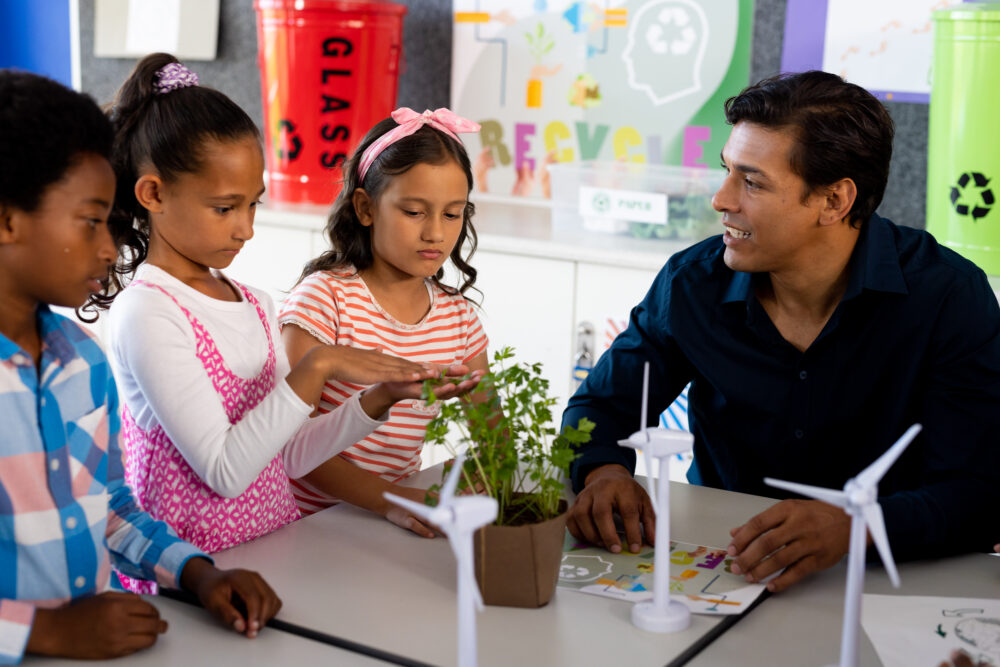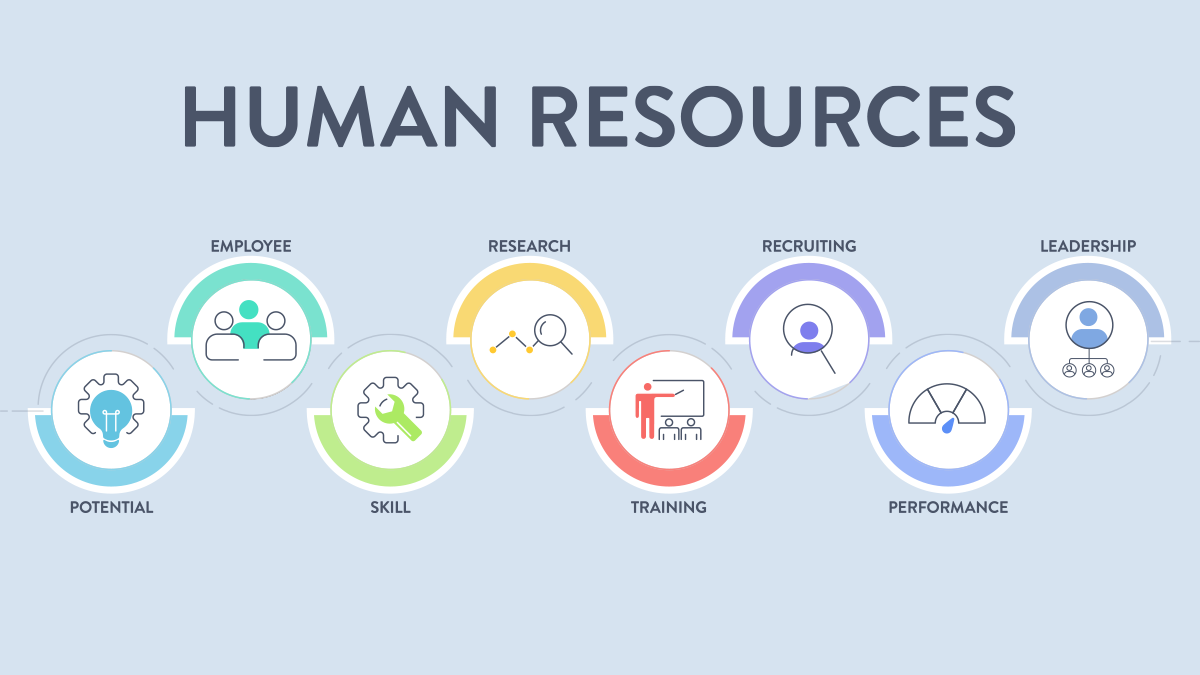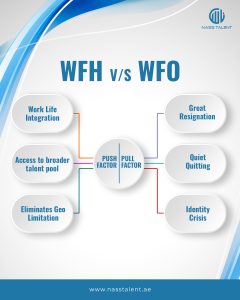Shaping Tomorrow: The Rise of Sustainability-Minded Teachers in Abu Dhabi

Sustainability is one of the more important aspects that is gaining attention as the global concerns over environmental impact grow. In fact, it has become a central theme in many industries, one of which is education. In Abu Dhabi, a region that which made sustainability one of the pillars of national goals, has increasing demand for teachers who emphasize environmental consciousness. In today’s blog, we will explain the reshaping the teaching profession is taking in Abu Dhabi and how institutions and teachers put much effort into building an eco-conscious generation.
The Growing Importance of Sustainability in Education
The education systems around the world have embraced sustainability and introduced it into school curricula and classroom practices. Abu Dhabi stands as a reginal leader, with the targets aligning with the UAE Vision 2030 and Abu Dhabi’s sustainability targets. These are not only initiatives to reduce environmental footprints but also form part of a long-term strategy in schooling citizens to understand, appreciate, and be part of creating sustainable practices. Many schools of Abu Dhabi are starting this movement with teachers who are trained to influence young minds to create the foundation for a greener future.
To tackle this vital objective, the education sector in Abu Dhabi trains students to know about sustainability so they can turn into responsible protectors of the environment. This is a promise of an environmentally conscious generation of students and starts with teachers who are not only aware but also actively involved in sustainable practices. This heightened focus has reshaped hiring practices in schools where requirements includes teachers who not only understand sustainability but can also integrate it into daily lessons and activities.
What a Sustainability Mindset Means for Teachers
A sustainability-minded teacher is more than just knowledgeable about eco-friendly practices; they embody and promote these values. Such teachers ensure aspects of sustainability resonate within their classrooms, emphasizing the importance of conservation, resource management, and ecological responsibility. This can range from encouraging recycling and waste reduction to utilizing eco-friendly materials or even making topics such as climate change and biodiversity relevant to teaching plans.
In addition to the subject matter, the conscious teacher is a role model, imparting knowledge to students through habits and practices concerning environmental consciousness. Educators are liable to support learning on subjects that are related to the environment and living in sustainable habits. Teachers should strive to make efforts, save resources and package eco-friendly projects that impact schoolwork, such as saving energy resources by conserving resources, recycling a smaller amount of paper, and even recycling waste materials.
How Schools are Prioritizing Sustainability in Hiring
The schools in Abu Dhabi reflect the dedication to be sustainable. The hiring standards must be revised to ensure that schools can obtain educators who understand the same values. More than often, hiring committees now seek a person with experience or certifications in environmental education or demonstrate commitment to sustainability. This person should be able to introduce those same principles into the subject taught, whether it is math, history, etc.
For instance, some schools introduce environment programs that require instructors to devise lesson plans centered on sustainability themes. Teachers who can incorporate those features into the classroom are required because they help meet not only the program or curriculum-related goals but also environmental objectives of a school. Education policy in Abu Dhabi always emphasizes this requirement by offering workshops, resources, and support meant to help teachers learn about sustainability, as it is conceptualized to be part of teachers’ professional development.
Incorporating Sustainability into Classroom Teaching
Sustainability is much more than an issue for science class; it’s a way of learning that teachers can add to the curriculum. For example, the math teacher might use real-time carbon footprint data to teach statistics; the art teacher might inspire the students to manufacture their products from recycled materials. Such efforts will, therefore, provide a different kind of education showing the children that sustainability is not something for one particular area but rather it is an integrated approach through which any part of life can be transformed.
Teachers can allow their students to interact with the natural environment in field trips to conservation sites or even school gardening projects. It’s when they see sustainability in action that students understand their role in protecting the planet. This type of experiential learning cannot be beat in making sustainability a lived and felt reality, not just an idea.
Benefits of a Sustainability Mindset for Students and Schools
Here are some of the benefits of sustainability mindset:
- Better Environmental Awareness: Students are more aware of ecological challenges and actions to counter those challenges.
- Gifting Sustainable Practices: Creates sustainability in children right from a young age by way of recycling, energy conservation, and waste reduction.
- Well Rounded Education: Teaches sustainability as a multidisciplinary exercise that makes learning interactive and relevant to the real-life challenges faced by them.
- Actively Responsible Duty to Mankind: Prepares students to take on the responsibilities of responsible, environmentally-aware citizens.
- School Reputation: Schools align with Abu Dhabi’s environmental vision; such schools thereby attract families that share an appreciation for sustainability.
- Community Engagement: The sustainability-oriented schools may collaborate with other organizations in the local communities to give an impression of social responsibility.
- Cost Savings: Nature-friendly practices like energy efficiency and waste reduction, can help with financial savings for schools.
- Fosters Better Teacher-Student Relationship: Sustainability projects would mostly be done in collaboration, thereby encouraging teamwork and mutual respect.
- Innovative Activity for Learning: Poses innovative problem-solving skills through activities such as an eco-project, gardening, and conservation.
- Promotes UAE Vision 2030: Actively supports the national goals through embracing sustainability values through its system of education.
Challenges and Opportunities for Teachers Embracing Sustainability
While integration of sustainability with teaching offers many rewards, it also throws in challenges. Resource constraints, the necessity of specific training, and the added time to actually develop lessons become a challenge. Again, these can be growth and creativity opportunities. Teachers appreciate taking the time to learn about the subject, enriching their experience as a teacher, with a new level of purpose and engagement at work.
Embracing a sustainability mindset also puts teachers to become part of a global movement, aligning them with dedicated educators throughout the globe striving for a better future. This relationship can be highly energizing; as teachers in Abu Dhabi view themselves as being actively involved in building a sustainable world.
Tips for Aspiring Teachers in Abu Dhabi to Develop a Sustainability Mindset
Keeping pace with environmental goals in Abu Dhabi, pursuing certifications in environmental education, or merely being involved locally might be a means of acting as an eco-friendly influence within the academic circle. Aspiring teachers can also eco-friendly habits will sznaturally influence teaching. They would further integrate these principles to build a classroom that focuses on sustainability.
Conclusion
The demand for sustainability-minded teachers in Abu Dhabi reflects on a bigger approach that the society takes to produce an environmentally aware generation. Such educators play very important roles in making Abu Dhabi achieve its environmental goals while molding students and giving them a sense of being responsible citizens of the world. Sustainability, in this aspect, becomes a source of revitalization and encouragement for teachers as they get the opportunities to change the world for the next generations. As Abu Dhabi increases its focus on sustainability, teachers who hold these ideals close to their hearts help the region realize its eco-friendly ambitions.









